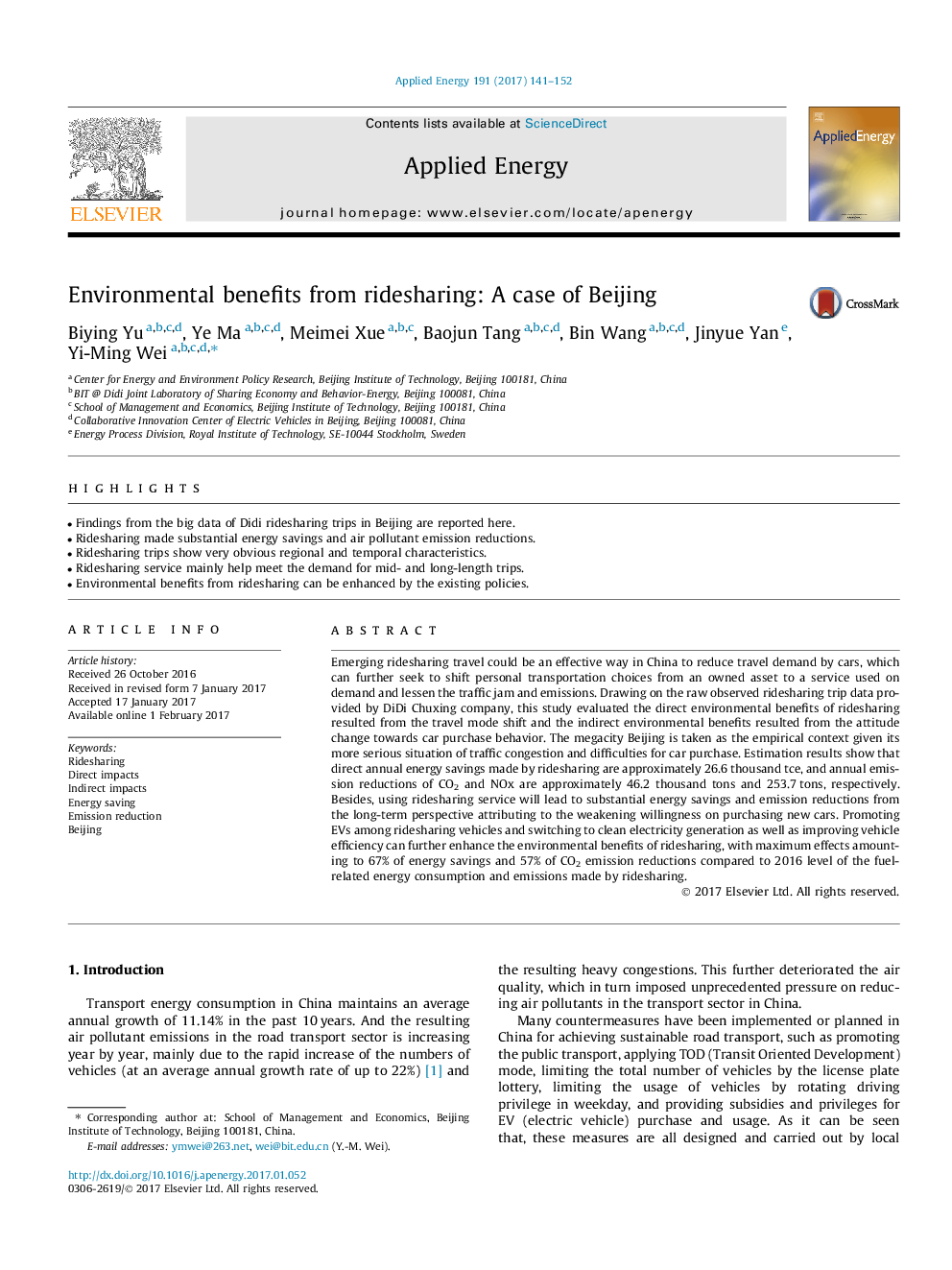| کد مقاله | کد نشریه | سال انتشار | مقاله انگلیسی | نسخه تمام متن |
|---|---|---|---|---|
| 6478727 | 1428099 | 2017 | 12 صفحه PDF | دانلود رایگان |
- Findings from the big data of Didi ridesharing trips in Beijing are reported here.
- Ridesharing made substantial energy savings and air pollutant emission reductions.
- Ridesharing trips show very obvious regional and temporal characteristics.
- Ridesharing service mainly help meet the demand for mid- and long-length trips.
- Environmental benefits from ridesharing can be enhanced by the existing policies.
Emerging ridesharing travel could be an effective way in China to reduce travel demand by cars, which can further seek to shift personal transportation choices from an owned asset to a service used on demand and lessen the traffic jam and emissions. Drawing on the raw observed ridesharing trip data provided by DiDi Chuxing company, this study evaluated the direct environmental benefits of ridesharing resulted from the travel mode shift and the indirect environmental benefits resulted from the attitude change towards car purchase behavior. The megacity Beijing is taken as the empirical context given its more serious situation of traffic congestion and difficulties for car purchase. Estimation results show that direct annual energy savings made by ridesharing are approximately 26.6 thousand tce, and annual emission reductions of CO2 and NOx are approximately 46.2 thousand tons and 253.7Â tons, respectively. Besides, using ridesharing service will lead to substantial energy savings and emission reductions from the long-term perspective attributing to the weakening willingness on purchasing new cars. Promoting EVs among ridesharing vehicles and switching to clean electricity generation as well as improving vehicle efficiency can further enhance the environmental benefits of ridesharing, with maximum effects amounting to 67% of energy savings and 57% of CO2 emission reductions compared to 2016 level of the fuel-related energy consumption and emissions made by ridesharing.
Journal: Applied Energy - Volume 191, 1 April 2017, Pages 141-152
